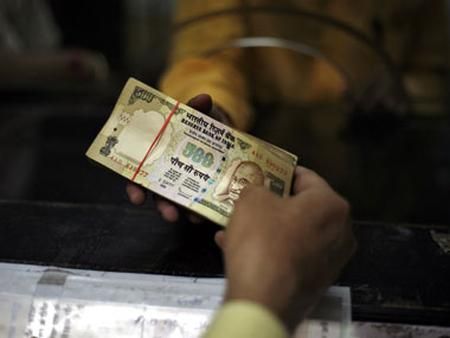 While most microfinance institutions (MFIs) with foreign equity holding are confident of reducing it to 40 per cent in the next 18 months as asked by the Reserve Bank of India, Ratna Vishwanathan (pictured below), CEO of Microfinance Institutions Network (MFIN), thinks it still remains a challenge.
While most microfinance institutions (MFIs) with foreign equity holding are confident of reducing it to 40 per cent in the next 18 months as asked by the Reserve Bank of India, Ratna Vishwanathan (pictured below), CEO of Microfinance Institutions Network (MFIN), thinks it still remains a challenge.
In an interview with Dilasha Seth and Indivjal Dhasmana, she says MFIN will bring all regulated institutions in the microfinance eco-system onto a single platform. Excerpts:
According to RBI, promoter holding should be 40 per cent and domestic holding at least 51 per cent. Given that most MFIs have foreign private equity, how will they raise domestic capital?
Individual MFIs have different challenges on this front as many of them have current foreign shareholding of 70-90 per cent at this point of time.
This is because many of the equity investments came from foreign social investment funds, multilateral institutions, and private equity funds.
Hundred per cent FDI (foreign direct investment) is permitted in non-banking financial companies (NBFCs) through the automatic route subject to certain conditions.
However, individual MFIs have worked on a road map, including lining up of domestic investors by some of them.
While this remains a challenge, most of them are confident of achieving this within 18 months, which is the time-frame given by RBI.
Eight of the 10 small banks licences issued by RBI are from MFIN. Will these entities remain part of MFIN even after becoming banks as these can’t float subsidiaries for NBFCs?
As small finance banks (SFBs), they cannot have subsidiaries but in the event of their transforming into universal banks in the future, this could be a possibility.
 Do you think small banks will be able to compete with larger entities in distributing products of insurance, MFs and pension?
Do you think small banks will be able to compete with larger entities in distributing products of insurance, MFs and pension?
Even today, many MFIs already distribute pension and micro insurance products to low-income households, which are underserved by the current formal institutions.
Going forward as SFBs, this potential can be carried ahead and become a part of the larger product suite offered by them.
They will be primarily catering to a segment where banks have negligible presence.
However, SFBs will focus on financial literacy as a first step prior to opening up a bouquet of products to ensure that there is no mis-selling.
What does RBI’s move entail for micro finance movement in India?
It widens the purview of the existing microfinance sector in India.
The RBI’s step of bringing in SFBs into play will take it to the next logical level of providing the entire array of microfinance products, which include savings, deposits, insurance and pension products to low-income, and underserved segments.
Do you feel the issue of new licences will help lower the cost of capital? What will this mean for the Make in India drive of the government?
The lowering of the cost of capital is a much wider question.
However, as far as SFBs are concerned, by garnering deposits and savings and managing funds in a cost-effective manner, they hope to bring down the final delivery cost to the client.
SFBs will meet the unmet demand of the micro enterprise segment, which faces difficulty in accessing funds today.
This will give an impetus to the segment and will contribute to the Make in India drive.
Are MFIN members cutting lending rates by 25 basis points?
MFIN members have already reduced lending rates by 25 basis points and the medium and large MFIs have reduced rates up to 100-150 basis points.
This is constantly being reviewed by MFIs.
What are the short-term and medium-term plans of MFIN?
The short-term plan is to bring in all new and upcoming NBFC MFIs into the ambit of MFIN and consolidate the robust regulatory framework we have worked consistently on putting into place since becoming a self-regulatory organisation.
For the long-term, bringing all regulated institutions that will formally work in the microfinance eco-system onto one platform to carry on and further consolidate the self regulatory framework is the way ahead.
Will RBI’s move encourage more MFIs to operate on a pan-India basis?
This will depend on the size, geographical focus and risk appetite of individual entities and, hence, one can't generalise.









